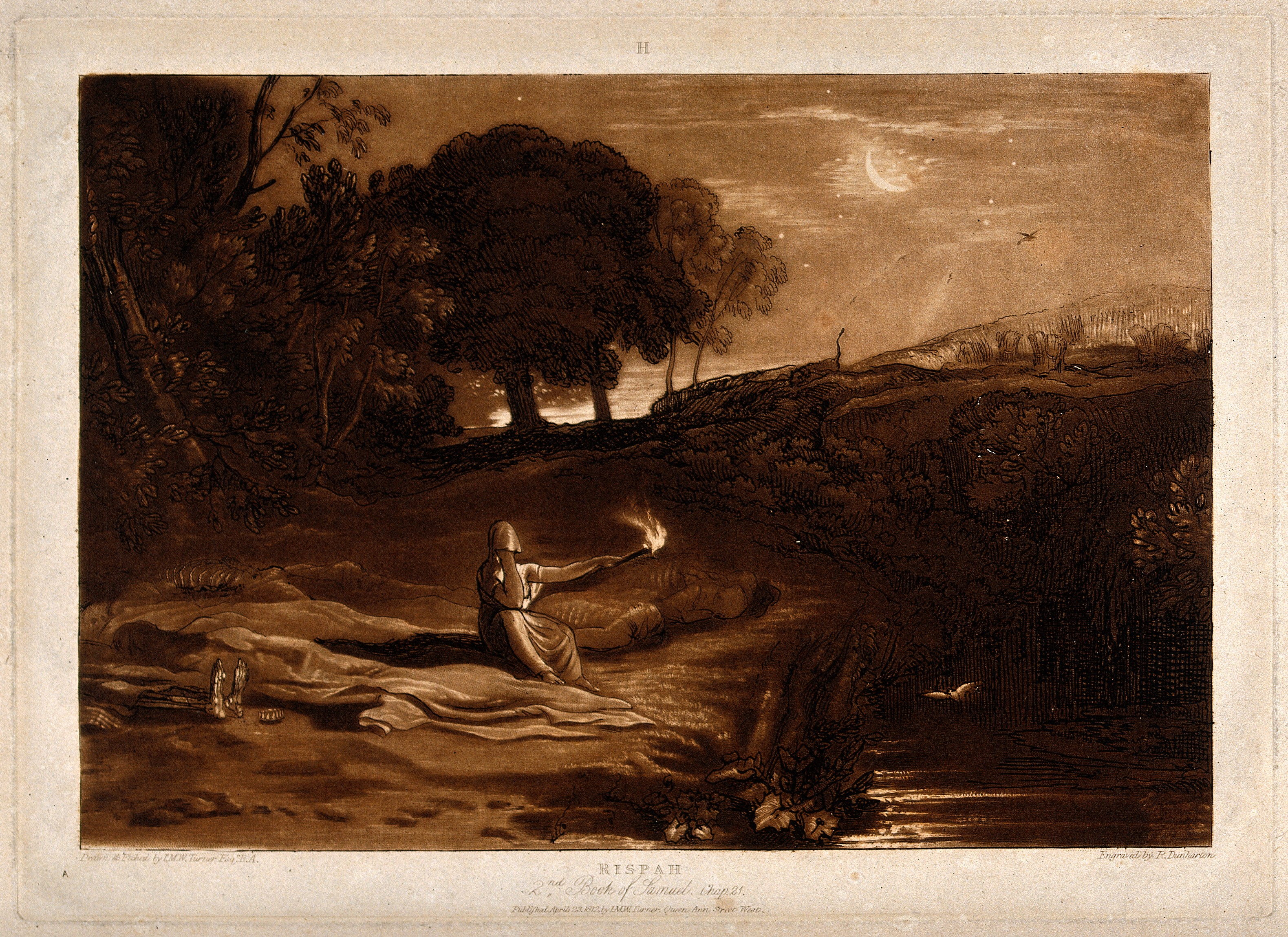One of the reasons I love this sermon series so much is that I am becoming familiar with powerful and inspirational characters in the Bible that I believe we can relate with on some level. Initially, I am struck with frustration that I did not learn much about these women growing up in church. When I get past that feeling, I am freed up to soak in the wonderful stories.
Rizpah and the Queen of Sheba are a few of these characters. These women were not part of my religious upbringing; I did not learn about them until seminary, and really until this sermon series. I am thankful for this opportunity to do that with you!
I invite you to read the story of Rizpah, which is cited above...(really, go ahead, read it...)
So, she was a concubine of Saul's. Not much power, not much voice, not much influence in her world. This is an ongoing theme not only for women, but throughout scripture. God uses people like this to show us something quite often, if we would only have the courage and open mind to listen to their story. Rizpah does not even speak in these passages. She has no words. She is simply a political pawn without power, status, or significance. But, she faces her grief with such courage for justice, that even king David takes notice. Both of the men that were in positions to protect and provide for Rizpah died. She was left alone. Later on, as David was rising in power, he had to atone for the sins of Saul to the Gibeonites, who asked for the slaughter of some of Saul's relatives. Among them were 2 of Rizpah's sons. He showed no signs of concern for Rizpah at all, and simply handed them over to be killed. How devastating is that? Heartbroken, Rizpah could have felt helpless, that there was nothing for her to do. She had lost any hope for security and protection now. And now she was faced with the desecration of her son's bodies. But she had other ideas; she would not allow that to happen. She was not allowed to move them or bury them, but she tried her best to protect them. So, she went to the place the bodies were kept, put a cloth over them, and stayed there. Imagine her protecting them from vultures, predators, putting herself in danger to protect them. This was a vigil, and a risky one at that. No matter how dangerous and gruesome this vigil was, she held it.She honored her sons and protected them from further humiliation. Eventually, David heard of this, and granted these sons a decent burial. This was all against a backdrop of a devastating famine. When David did this, the famine was over, signaling God's desire for mercy over vengeance.
The Queen of Sheba pursues justice in a different way. Using her power and influence, she reminds King Solomon. The queen had heard of King Solomon's fame and wisdom, but had to go see for herself. So she goes and visits her and is impressed, saying “The report was true that I heard in my own land of your accomplishments and of your wisdom, but I did not believe the reports until I came and my own eyes saw it. Not even half of the greatness of your wisdom had been told to me; you far surpass the report that I had heard. Happy are your people! Happy are these your servants, who continually attend you and hear your wisdom! Blessed be the Lord your God, who has delighted in you and set you on his throne as king for the Lord your God. Because your God loved Israel and would establish them forever, he has made you king over them, that you may execute justice and righteousness.”
What a scene this must have been! The queen did not adhere to the same religion that Solomon did, but affirms his leadership through God, encouraging him to use his role for justice and righteousness.
Whether we have power and influence or not, we always have the ability to encourage others to lead in this way, through a God that is just.
*Prayer:
O God, our help in ages past,
our hope for years to come,
our shelter from the stormy blast,
and our eternal home.
Under the shadow of thy throne,
still may we dwell secure;
sufficient is thine arm alone,
and our defense is sure.
Before the hills in order stood,
or earth received her frame,
from everlasting, thou art God,
to endless years the same.
A thousand ages, in thy sight,
are like an evening gone;
short as the watch that ends the night,
before the rising sun.
Time, like an ever rolling stream,
bears all who breathe away;
they fly forgotten, as a dream
dies at the opening day.
O God, our help in ages past,
our hope for years to come;
be thou our guide while life shall last,
and our eternal home.
*O God, Our Help in Ages Past, United Methodist Hymnal, 117.
In Christ,
Jack
Lynn Japinga's Preaching the Women of the Old Testament heavily influenced this blog post


No comments:
Post a Comment